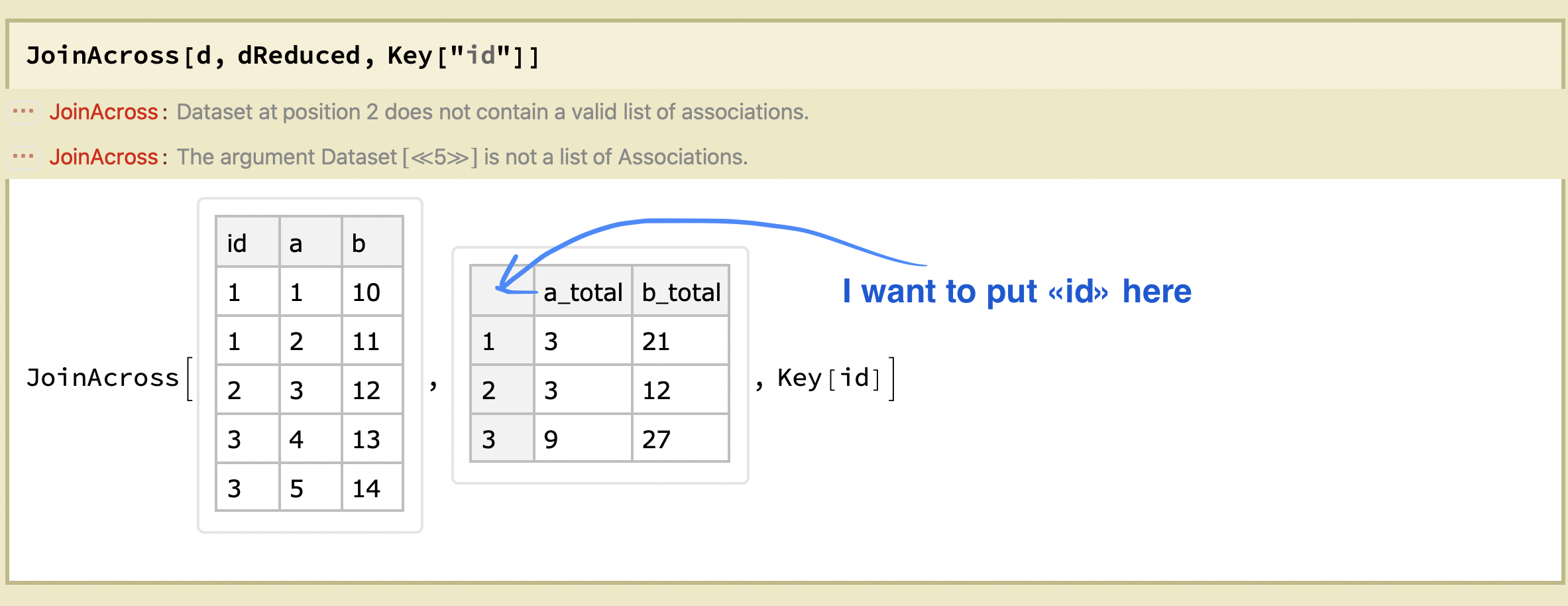JoinAcross of two datasets does not work, because the second dataset is an association {key_i -> association_i} instead of a list of associations.
d = Dataset[{
<| "id" -> 1, "a" -> 1, "b" -> 10 |>,
<| "id" -> 1, "a" -> 2, "b" -> 11 |>,
<| "id" -> 2, "a" -> 3, "b" -> 12 |>,
<| "id" -> 3, "a" -> 4, "b" -> 13 |>,
<| "id" -> 3, "a" -> 5, "b" -> 14 |>
}
];
dReduced = d[GroupBy["id"], Total, 2 ;; 3][All, <|"a_total" -> "a", "b_total" -> "b"|>]
(*
dReduced = <|
1 -> <|"a_total" -> 3, "b_total" -> 21|>,
2 -> <|"a_total" -> 3, "b_total" -> 12|>,
3 -> <|"a_total" -> 9, "b_total" -> 27|>
|>;
*)
JoinAcross[d, dReduced, Key["id"]]
The last line results in JoinAcross::ntable: Dataset at position 2 does not contain a valid list of associations.
I can't find a simple way to transform the second dataset to a list of associations and restore name 'id' for the key. More than that, I don't see any reason to do it: the second database is indexed by a proper key and the join operation could be optimal (for merge strategy of "join" no need to group the second dataset by a key).
Expected result:
Dataset[{
<| "id" -> 1, "a" -> 1, "b" -> 10, "a_total" -> 3, "b_total" -> 21 |>,
<| "id" -> 1, "a" -> 2, "b" -> 11, "a_total" -> 3, "b_total" -> 21 |>,
<| "id" -> 2, "a" -> 3, "b" -> 12, "a_total" -> 3, "b_total" -> 12 |>,
<| "id" -> 3, "a" -> 4, "b" -> 13, "a_total" -> 9, "b_total" -> 27 |>,
<| "id" -> 3, "a" -> 5, "b" -> 14, "a_total" -> 9, "b_total" -> 27 |>
}]

